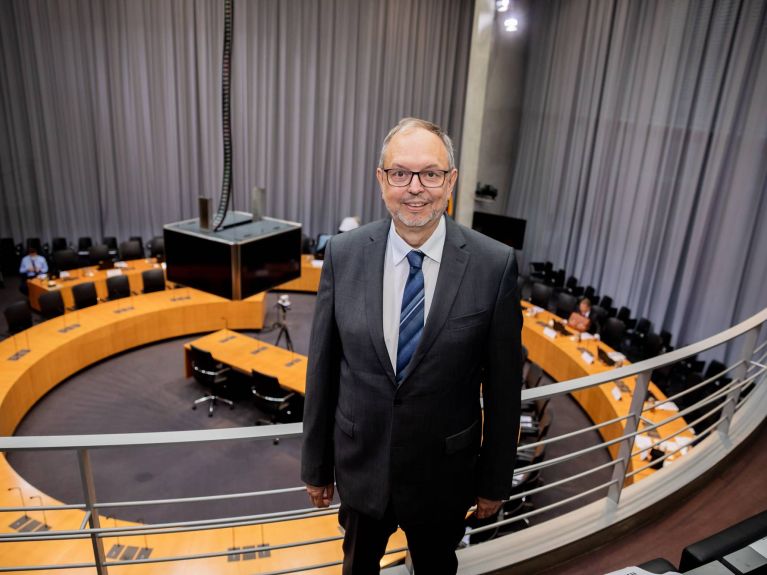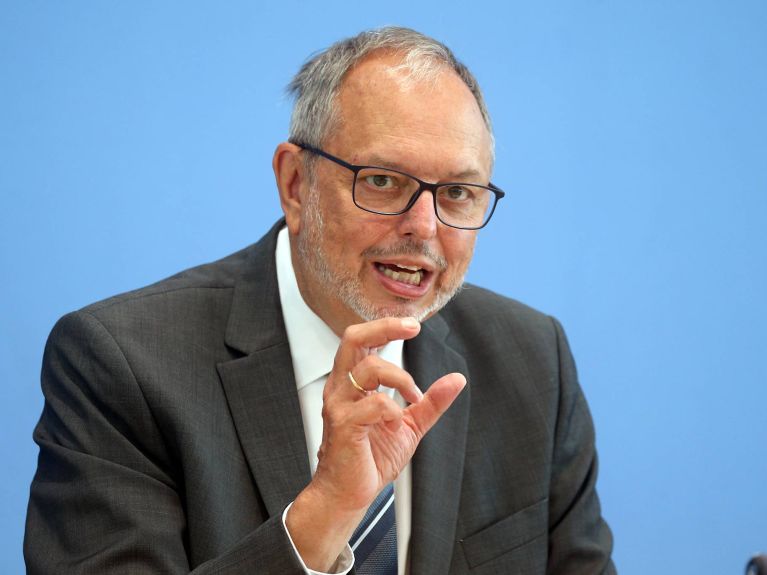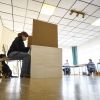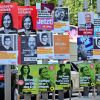"Stable and secure"
Is the election in Germany threatened by manipulation? The Federal Returning Officer explains the precautions that are being taken.

Dr Georg Thiel is Germany's Federal Returning Officer and President of the Federal Statistical Office. His job is to organize and supervise the elections at the federal level.
Until now, the Bundestag election has been considered safe from fraud, manipulation or forgery. Has this changed as a result of the increase in cyber attacks and disinformation campaigns?
No, the electoral system in Germany is stable and secure. After all, there is a whole network of authorities and electoral bodies working to ensure that the election is conducted according to the rules. In addition to the electoral bodies, these include the Federal Office for Information Security, which provides support in securing the IT used, as well as the Federal Agency for Civic Education and the Federal Press Office with their comprehensive information services relating to the Bundestag election. The Federal Ministry of the Interior and the various security authorities are, of course, also working to ensure a safe election for all citizens despite a wide range of developments. We are very vigilant and are constantly monitoring a range of risks so we can respond quickly and take countermeasures.
The coronavirus pandemic poses special challenges.
What attempts at manipulation do you anticipate and how are you preparing for them?
I'll give you an example: in the 2017 general election, it was claimed that polling stations would close as early as 3pm. We immediately clarified on Twitter that the polling stations would stay open until 6pm as usual. To counteract such misinformation and other attempts at manipulation, the Federal Returning Officer and the returning officers of the states proactively provide information about the election via various channels, such as our website, social media, press releases and interviews. We provide information on Twitter and Instagram via the account @Wahlleiter_Bund, and we have set up a section called 'Facts against Fake News' at www.bundeswahlleiter.de.

What challenges are posed by the pandemic and, in particular, by a fourth wave of coronavirus?
The coronavirus pandemic, of course, poses special challenges in the Bundestag election. We are preparing for all scenarios and will be able to conduct a proper election in September. Experience gathered at the state elections in Rhineland-Palatinate, Baden-Württemberg and Saxony-Anhalt have shown that elections are also possible under pandemic conditions in compliance with the appropriate rules of hygiene.
To what extent could the destroyed infrastructure in the areas hit by floods be a problem?
Fortunately, electoral law and regulations provide rules on how to conduct the election even under such difficult conditions. For example, the electoral rolls were drawn up in good time, partly with the assistance of neighbouring municipalities. Where infrastructure is lacking, for example for polling stations, tents or containers can be put up. And voters can also be informed about the election in other ways than by the official postal election notification. For example, there will be posters with election information and a media campaign.
Find out more about the German landscape of political parties in our Special on the Bundestag election.
You would like to receive regular information about Germany? Subscribe here:


